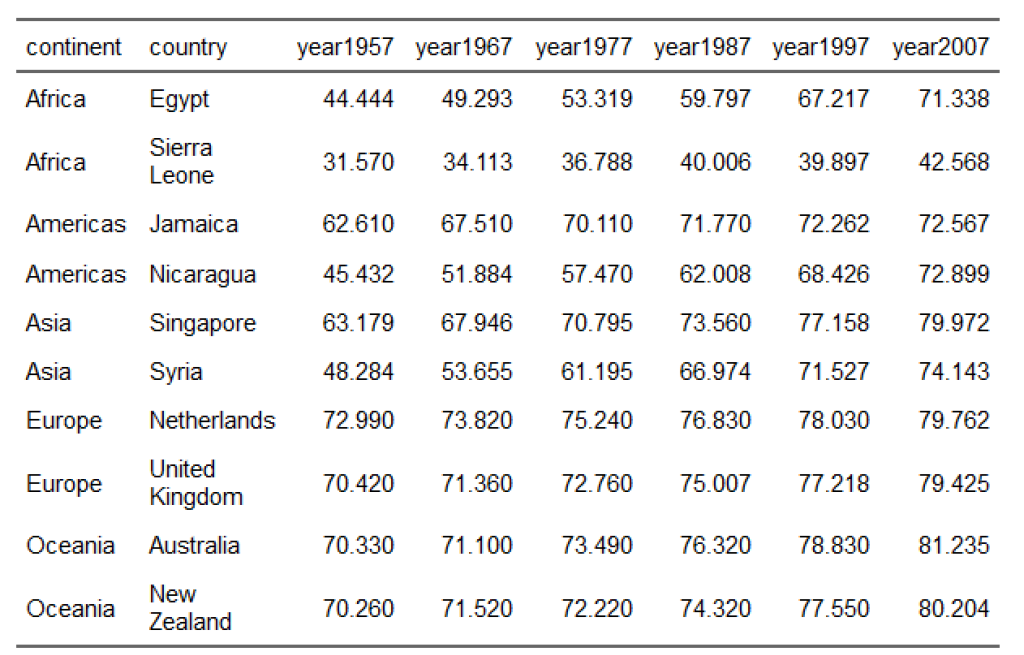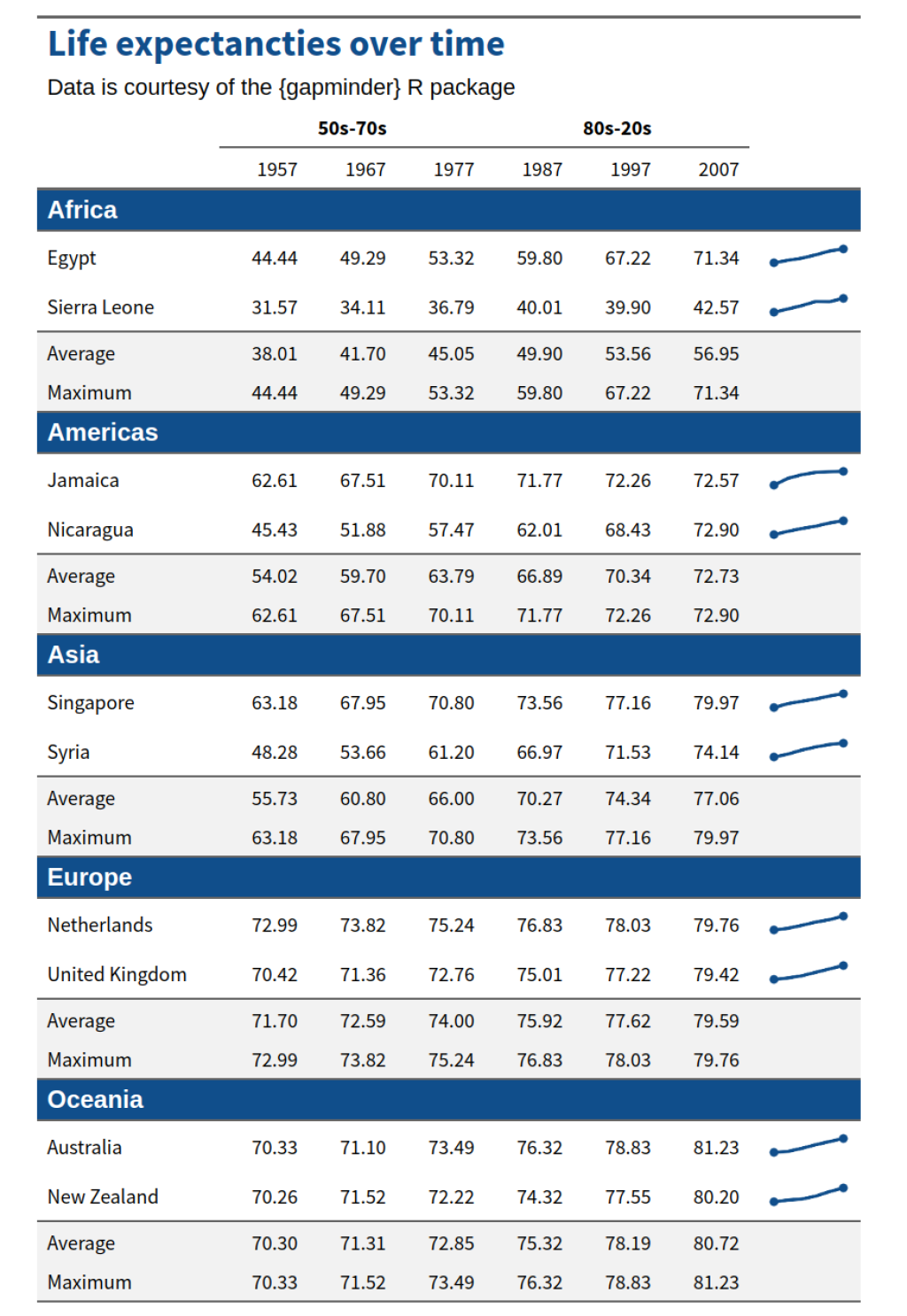Tables are often boring, hard to read, and, most importantly, they don't communicate effectively. In this course, Albert Rapp will show you that creating beautiful tables is just a matter of learning some important principles. You'll learn these principles and how to apply them using the flextable package. And when you're done making your beautiful tables, you'll learn to export them to any format you need. If you're ready to make tables that look great and communicate well, this is the course for you!
In this course, you'll go from tables that look like this:

To tables that look like this:
Want to see more of what Making Beautiful Tables with R has to offer? Check out the sample lessons on formatting numbers in tables and exporting tables.

